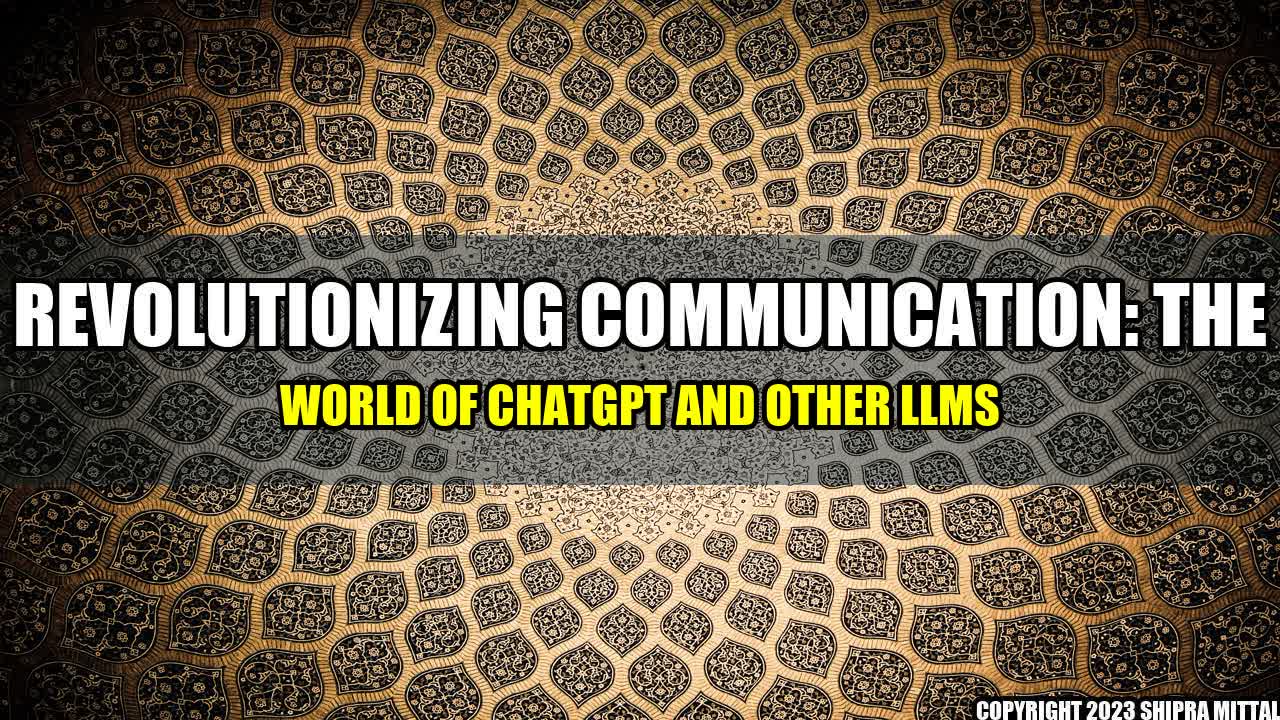Have you ever found yourself struggling to express your thoughts in writing or simply feeling too shy to speak your mind?
Imagine being able to talk to a computer program and have it respond as if it were a human being, understanding your emotions, giving you advice, and engaging in meaningful conversations with you.
That's exactly what ChatGPT and other Language Model Platforms (LLMs) are designed to do. These systems rely on Artificial Intelligence (AI) and Natural Language Processing (NLP) to analyze human language and generate responses that sound like they were written by a person.
ChatGPT, in particular, has gained a lot of attention for the impressive quality of its answers and the wide range of topics it can cover. Developed by OpenAI, a research company co-founded by Elon Musk, ChatGPT has evolved from a 1.5 billion parameter model to a staggering 175 billion parameter one.
But ChatGPT is not the only player in this field. Google's Meena, Microsoft's DialoGPT, and Facebook's Blender are just a few examples of LLMs that are pushing the boundaries of what is possible when it comes to human-computer interaction.
Real Life Examples
One of the main applications of LLMs is in customer service. Companies can use them to automate responses to common inquiries, freeing up human agents to deal with more complex issues.
For instance, Hugging Face, the developer of DialoGPT, has partnered with several companies to implement chatbots that can answer questions about their products or services. Booking.com, for example, uses DialoGPT-powered chatbots in its Android and iOS apps to assist customers with their reservations.
Another interesting use case for LLMs is in mental health. Woebot, a chatbot developed by clinical psychologists at Stanford University, uses CBT (Cognitive Behavioral Therapy) techniques to help people address issues such as anxiety and depression. Woebot can also provide users with educational materials, breathing exercises, and other tools to improve their mental well-being.
Where LLMs Could Go Next
The potential applications of LLMs are countless. The technology could be used in language translation, content creation, personalized advertising, and even entertainment.
For example, imagine being able to have a conversation with your favorite character from a movie or a TV show. LLMs could simulate the personality and mannerisms of fictional characters, allowing fans to interact with them in a more immersive way.
However, there are also some concerns about the ethical implications of LLMs. As these systems become more advanced, they could be used to spread misinformation, impersonate individuals, or perpetuate harmful stereotypes.
Conclusion
LLMs are transforming the way we communicate and interact with technology. From customer service to mental health, these systems are already making a difference in people's lives.
However, we must also be aware of the potential risks and challenges that come with this technology. As LLMs continue to evolve, we need to ensure that their development is guided by ethical principles and that their deployment is responsible and transparent.

Akash Mittal Tech Article
Share on Twitter Share on LinkedIn